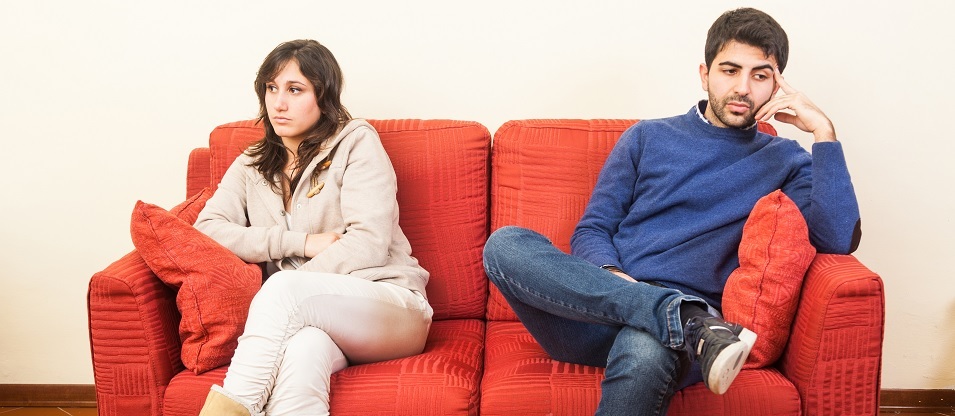
By Daniel Dacombe
In the last year, a lot has changed. The transition from our pre-COVID to COVID lives was sudden and jarring, as the flu we’d been hearing about on the news overseas suddenly arrived on our own doorsteps. We have begun to adjust… somewhat.
But for many of us, a year of varying degrees of lockdown also means we’ve been in the presence of our romantic partners more than ever before. You know the old saying that says “familiarity breeds contempt”? Well, it’s starting to make an awful lot of sense.
For adults who live with their partners, we’re used to spending most of our time apart. We depart for work in the morning, we come home in the evening, and we’re granted a welcome respite together on the weekend. Even if only one partner typically leaves for work, we’re most often out of contact for most of the day. We also tend to have lives outside the home.
To put it simply, it’s normal not to spend every waking moment with your romantic partner. And it’s normal not to necessarily want to.
Now, though? Many of us not only spend all day at home, but virtually all our free time as well. Movie theatres are closed, shopping has been sharply curtailed, gyms have until recently been off-limits, and even visiting with friends has been a rare occurrence.
The relational toll of all this togetherness has been noteworthy. One website that provides legal documentation reported a 34 percent increase in requests for divorce papers during the lockdown.
If you chose to read this article, hearing about that increase might make a great deal of sense to you. Many people have started to ask, is being together all the time actually bad for us? Is it causing us to have more fights than before? Or has the lockdown just shown us that we’ve been broken all along and just didn’t realize it?
Such questions have been anticipated by professionals in the field of psychology. Early in the pandemic, an article was published in the journal American Psychologist detailing the expected struggle for romantic partners. War, natural disasters, and other external stressors have been shown to affect the quality and stability of romantic relationships—that is, couples tend to become more withdrawn, unsupportive, and hostile. These issues are often exacerbated by financial stress, health concerns, and underlying physical and mental health issues… all of which have increased sharply in the last year.
However, it would be wrong to conclude that the pandemic has ruined healthy relationships to a significant extent. The increase in divorces may not be a sign of good relationships turning bad; it may actually be a sign of previously troubled relationships reaching a breaking point more quickly.
What about couples who had healthy and supportive relationships prior to the pandemic? In that regard, research shows us that our romantic relationships also have the ability to get us through this stressful time.
Austrian psychologists conducted a study early in their country’s lockdown and found that healthy and supportive relationships were a protective factor for people’s mental health.
By contrast, unhealthy relationships were found to contribute to significantly higher rates of mental health issues. According to their research, during the pandemic single people fared better (in terms of their mental health) than people in unhappy or unhealthy relationships.
Another study found that couples who used the additional time afforded to them to invest in their relationship have tended to support each other.
The implications are clear: if we want our relationships to survive this global pandemic, we need to take the time and energy to invest in them.
(We also need to take a moment to acknowledge that while many otherwise positive relationships have been struggling throughout the pandemic, there are also relationships in which violence is a factor—and these relationships have likewise been impacted by COVID-19. Many individuals have been forced to spend more time than usual at home with a violent partner, and because of that their exposure to violence has likewise increased. Numerous media outlets have reported double or triple the average number of calls to Intimate Partner Violence (IPV) hotlines during the lockdown, and homicides against women by intimate partners has doubled in some areas. These issues are significant and must be dealt with appropriately. In these situations, regular relationship interventions are unlikely to succeed.)
One such source of information about improving relationship health is the Gottman Institute. Founded by married psychologists Drs. John and Julie Gottman, the Gottman Institute is the world’s foremost source of research on marriage and relationships.
The Gottman Institute has published resources for couples during COVID-19, including articles on communication and on “stay-at-home-dates,” as well as many other books, articles, and supports designed for couples both healthy and struggling. There is also the option of seeing a marriage counsellor, which we can accomplish thanks to the advent of videoconferencing.
One of the leading causes of divorce, even when we aren’t living during a global pandemic, is waiting too long to start working on the problems that exist in a relationship. Early is the best time to start working on issues that crop up, before they begin to impact our mental health. If you wait too late, it could cost you the relationship—or perhaps worse, the pandemic might end and the problems in our relationships might go back into hiding.



















